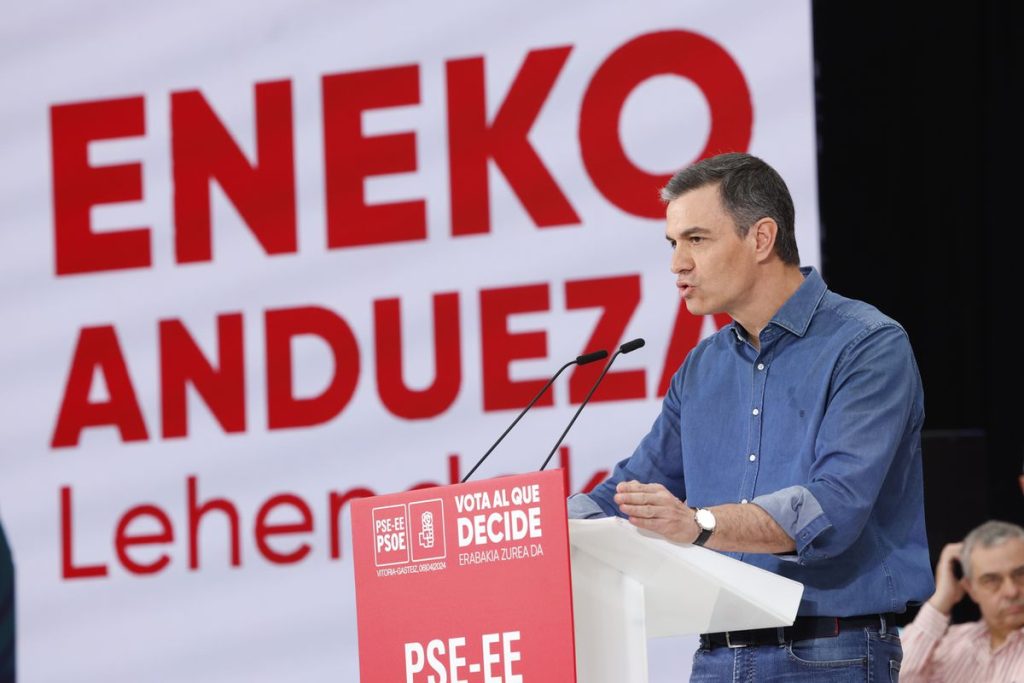Iñigo Urkullu, the lehendakari of the Basque Country, faced the challenge of scheduling the Basque elections in a way that would not be overshadowed by the national political turmoil. He chose April 21st, almost two months before the European elections, and to avoid coinciding with Galicia as in previous years. However, Catalonia’s decision to hold elections on May 12th threw a wrench in his plans. Despite the presence of national leaders like Irene Montero, Santiago Abascal, Alberto Núñez Feijóo, Pedro Sánchez, and Yolanda Díaz in the Basque Country during the first weekend of the campaign, there has been little escalation in tension. The political climate has been relatively calm, with a tacit agreement of non-belligerence among the parties.
The main players from Madrid have not succeeded in shaking up a campaign that is progressing slowly without major controversies or loud accusations. There was speculation about whether the national parties would use this opportunity to engage in heated debates and controversies, as seen in Galicia with the amnesty law issue. However, this has not materialized in the Basque Country. Feijóo emphasized the PP’s role as the only moral alternative to the parties aligned with Sánchez, while Sánchez refrained from engaging in direct confrontation. Eneko Andueza, the candidate for lehendakari from Sánchez’s party, made it clear that there will be no government alliance with EH Bildu, a statement echoed by Sánchez regarding a strategic alliance with the PNV.
The presence of Yolanda Díaz, the second vice president and Minister of Labor, highlighted the current state of Spanish politics as a “muddy field” dominated by constant accusations. Sumar, a new political force in the Basque Country, faces challenges in establishing themselves and may struggle to secure parliamentary seats. In Vitoria, Sánchez, Díaz, and Abascal held separate rallies on Saturday morning, emphasizing the city’s importance in the election outcome. EH Bildu’s success in the local elections last year in Vitoria, supported by PP votes for a coalition with the PNV, illustrates the city’s significance in the political landscape of the region.
As the PNV and EH Bildu focus on their campaign programs, emphasizing the importance of engaging with voters and presenting their platforms, Otegi’s call for a constructive and respectful discourse has been heeded by his party members. The traditional combative rhetoric of previous campaigns has been replaced by a more peaceful and focused approach. The Basque elections remain a close contest, with the votes from Alava potentially influencing the outcome on April 21st if the PNV maintains its stronghold in Bizkaia and EH Bildu claims the top spot in Gipuzkoa. The focus on policy and respectful debate reflects a desire for a more positive and constructive political environment in the Basque Country.
Overall, the campaign in the Basque Country has been marked by a sense of calm and respect, with national leaders refraining from escalating tensions during their visits. The Basque electorate is focused on issues and programs rather than on divisive rhetoric, mirroring a desire for a more constructive and respectful political discourse. The upcoming elections on April 21st will test the ability of the parties to engage effectively with voters and present their vision for the future of the Basque Country, amidst a backdrop of national political turmoil.


